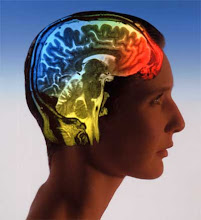Authoritarian Personality Theory
The idea of the Authoritarian Personality (AP) was formed in the aftermath of the Second World War, as Adorno and colleagues (1950) tried to explain the attraction of Fascism to certain types of people. Strongly influenced by Psychoanalysis as well as by the character and childhood histories of Hitler and other prominent Fascists and Nazis, the AP theory suggests that a harsh upbringing can lead to a warped personality that values authority very highly. This means not just that they will try to dominate others, but that they value the authorities e.g. government, church and despise anyone who is non-conventional.
The AP theory explains prejudice in that these character traits predict one's potential for fascist and antidemocratic leanings and behaviour. Therefore is explains prejudice mainly as an individual trait rather than as a force in society.
Adorno et al devised a personality scale called the F-Scale which measured attitudes towards authority, work, honour, sexuality and even the occult, asking for opinions on statements like, "People can be divided into two distinct classes: the weak and the strong". People who scored highly were said to have several key attributes, including:
- Conventionalism: rigid adherence to conventional values.
- Authoritarian Submission: submissive, uncritical attitude toward idealized moral authorities.
- Authoritarian Aggression: tendency to condemn & reject outgroups.
- Power and "Toughness": preoccupation with the dominance-submission, leader-follower dimension.
- Destructiveness and Cynicism: generalized hostility, vilification of the human.
- Sex: exaggerated concern with sexual "goings-on."
Later research by Altemeyer et al (1981) found that only the first three of these traits reliably correlate.
The theory become highly popular and well known, but soon began to be rejected by the scientific community (Scott, 1992). The F-Scale was shown to be unreliable, suffering from an ‘acquiescence response set’ – where people are more likely to agree than disagree with questionnaire questions. As all questions were phrased in such a way that an ‘agree’ answer was associated with a higher F-score, it may be that some participants just agreed to most or all without much thought.
The theory itself provided a description of a supposed personality type with out any clear explanation of how people become this way. It was complex, and has been largely superseded by the simpler ‘RWA’ (Right-wing authoritarian) model of Altemeyer. In focusing on personality, it also neglects the social aspects of prejudice.

No comments:
Post a Comment